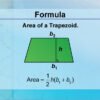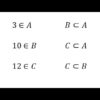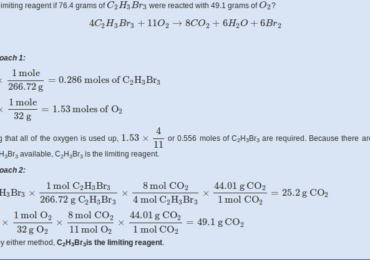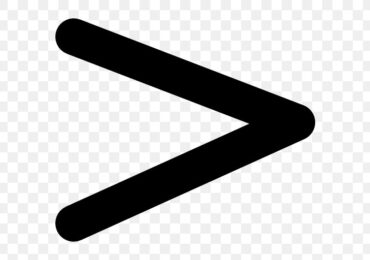All the numbers that perfectly divide the number 72 and do not leave any remainder are called the factors of 72.
This article will give an understanding of the factors of 72 and precisely how to locate them by utilizing numerous approaches consisting of prime factorization and division techniques. This write-up also clarifies the Factor Tree of 72 and Factors of 72 in Pairs with some instances.
What Are the Factors of 72
The factors of 72 are as complies with 1, 2, 3, 4, 6, 8, 9, 12, 18, 24, 36 and 72. All the numbers mentioned above are excellent divisors of the number 72. When 72 is divided by any of the stated numbers, it is divided totally and leaves zero as a remainder. You can additionally discuss it by using the approaches of multiplication where two factors increase ideally to offer the number 72. Remarkably, one and the number itself (72) fall in the interpretation of factors for every number. So, 1 and 72 are likewise the factors of 72.
Precisely how To Calculate the Factors of 72?
To find the factors of 72, start dividing 72 by the smallest natural number that divides 72 perfectly and does not leave any remainder. Continue dividing 72 by consecutive whole numbers. If the quotient is a whole number, it is the best divisor of 72. For this reason, likewise, it is a factor of 72. If the quotient is a number in a fraction, it is not a factor of 72. Now let’s begin the treatment: Divide 72 by the smallest natural number, i.e., 1.
72/1 = 72
72/2 = 36
72/3 = 26
72/4 = 18
72/6 = 12
72/9 = 9
All the above numbers entirely divide into 72 and do not leave any rest. So, all these numbers are factors of 72. The method mentioned above is called determining the factors by division approach. There are various methods to compute the factors of 72. Different other techniques are also explained in this post.
Factors of 72 by Prime Factorization
The prime factorization of 72 is the expression of 72 as a product of its prime factors. To determine the factors of 72 by the prime factorization method, divide 72 by the smallest prime number, which divides 72 precisely. The resulting quotient is once more divided by the smallest prime number, and the treatment continues until we get one as the final quotient when it can not be divided any type further. Right here are the actions to calculate factors of 72 by prime factorization. The primary step at the same time is to divide 72 by the smallest prime number divisor, which in this instance is 2.
72/2 = 36
The quotient 36 is an even composite number, and it better calls to be divided by 2, being the smallest readily available prime number divisor.
36/2 =18
18 is another composite number that can be further divided by the prime number 2.
18/2 = 9
Currently, as nine can not be entirely divided by 2, we have to shift to the smallest prime number that divides the quotient nine altogether and does not leave any rest. In the provided instance, the prime number is 3, which divides 9.
9/3 = 3
The quotient three currently can only be additionally divided by three as well as thus give the following quotient as 1
3/3 = 1
The quotient cannot be divided further.
Factor Tree of 72
Factors of 72 can also be expressed utilizing a factor tree. It is a method of exhibiting the factors of a number, particularly the prime factorization of a number in which each branch of the tree divides right into its factors. These factors are dispersed and written in the type of branches revealing the offered number’s factorization.
Read Also: Area of Trapezoid Explained with Example
The splitting of a branch can either produce prime or composite numbers. If the branches from a split produce a composite number, the branching goes even more. The method proceeded until the factors at the end of the branch generated both the prime numbers. This is where the branching quits. If we write 72 into multiples, it would undoubtedly be:
72 = 2 x 36
Upon dividing 36 into its multiples, it would be:
36 = 2 x 18
Dividing 18 even more into its multiples would certainly lead to the following:
18 = 2 x 9
More dividing nine into its multiple factors would offer the following:
9 = 3 x 3
By dividing three further into its multiples, it would be:
3 = 3 x 1
Expressing the number in terms of prime factors would offer us the following:
2 x 2 x 2 x 3 x 3
Factors of 72 in Pairs
Factor pairs of 72 are the two factors of 72 that, when multiplied together, provide the product as 72. A collection of 2 all-natural numbers whose product offers us the number 72 are called factors of 72 in pairs. Pair Factors are a pair of numbers that provide 72 when multiplied by each other. Adhering to are the pair factors of the number 72
1 x 72 = 72
2 x 36 = 72
3 x 24 = 72
4 x 18 = 72
6 x 12 = 72
8 x 9 = 72
9 x 8 = 72
12 x 6 = 72
18 x 4 = 72
24 x 3 = 72
36 x 2 = 72
As there are 12 factors out of 72, You can write these factors in pairs. The factors pairs of 72 are (1, 72), (2, 36), (3, 24), (4, 18), (6, 12), and (8, 9). The number 72 can have negative pair factors, and the multiplication of 2 negative factors produces a positive product.
( -18) x (-4) = 72
( -6) x (-12) = 72.
( -3) x (-24) = 72.
Therefore, below are some instances of negative set factors of 72, such as (-1, -72), (-2, -36), (-3, -24), (-4, -18), (-6, -12), and (-8, -9). So, You can establish that the product of all factors of 72 in its negative type provides the result 72. They are called negative set factors of 72.
Tips and Tricks
Every factor of an offered number is either less than or equal to that provided number but can never be more than the number. Therefore, the factor of 72 can never be greater than 72 itself.
Just whole numbers and integers can be the factors of a provided number.
Any provided number has only a limited variety of factors/divisors; in this situation, number 72 has just 12 factors.
A trick to calculate the total number of factors of a provided number can aid figure factors of large numbers and save a long time. You can likewise use it to cross-check the standard techniques of determining factors of an offered number.
Which of the adhering to sentences is not true regarding factors of 72?
72 has a total of 12 factors.
72 has only two prime factors, which are 2 and 3.
Seventy-two can have one positive as well as one negative factor in both.
Set Factors of 72 can have both one prime and one composite number.
Solution
The particular item of one positive and one negative number will always be negative. For this reason, 72 can never have one positive or an additional negative consider set. So Incorrect declaration is 72 can have one positive and one regarded as negative. Images/mathematical drawings are produced with GeoGebra.








